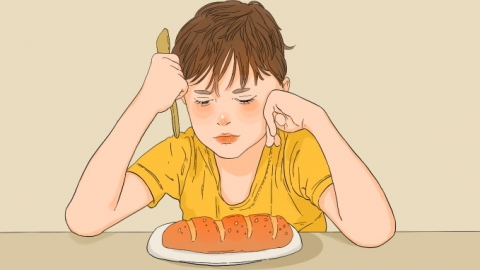Why does a child still feel weak after recovering from influenza B at the age of six?
Influenza B refers to type B influenza. If a child lacks energy after recovering from type B influenza at the age of six, it may be due to excessive physical exhaustion, insufficient nutrient intake, myocarditis, anemia, Mycoplasma infection, or other causes. Appropriate management should be based on the specific situation. It is recommended to visit a hospital promptly and follow medical advice for treatment.

1. Excessive Physical Exhaustion: During the course of type B influenza, the child's immune system actively fights the virus, consuming significant energy. Even after recovery, the body remains in a recovery phase with insufficient energy reserves, resulting in fatigue. To improve this, ensure adequate sleep and enhance nutrition by consuming protein-rich foods such as eggs, milk, fish, and fruits and vegetables rich in vitamins to help restore energy.
2. Insufficient Nutrient Intake: During illness, the child may experience reduced appetite and decreased food intake, leading to inadequate nutrient absorption. The body lacks sufficient energy to sustain normal physiological activities, causing fatigue. This can be improved by adjusting the diet to include light, easily digestible, and nutrient-rich foods such as millet porridge, yam lean meat porridge, and eating small meals more frequently to gradually increase food intake.
3. Myocarditis: Following a type B influenza virus infection, the myocardium may be affected, leading to myocarditis. Damage to the heart muscle impairs the heart's pumping function, causing systemic insufficient blood supply, resulting in fatigue. This may also be accompanied by symptoms such as palpitations, chest pain, and difficulty breathing. Patients can take medications such as Coenzyme Q10 capsules, Vitamin C tablets, and Creatine phosphate sodium injection under a doctor's guidance to alleviate fatigue.
4. Anemia: Type B influenza may affect the child's hematopoietic function or cause anemia due to nutritional deficiencies during illness. The oxygen-carrying capacity of red blood cells decreases, leading to insufficient oxygen supply to various organs, causing fatigue, pallor, dizziness, tinnitus, and other symptoms. It is recommended to use medications such as ferrous sulfate syrup for children, Vitamin B₁₂ tablets, and folic acid tablets under medical guidance to improve fatigue.
5. Mycoplasma Infection: After type B influenza, the child's immunity decreases, making them susceptible to secondary Mycoplasma infection. The pathogen invades the respiratory tract and the entire body, triggering an inflammatory response that consumes body energy, leading to fatigue. This may be accompanied by coughing, typically an irritative dry cough, and possibly fever. Follow medical advice to use medications such as Azithromycin for oral suspension, children's cough syrup, and Ambroxol oral solution to promote recovery.
In daily life, ensure adequate rest, provide nutrient-rich foods, and gradually increase physical activity, such as walking and light games, to aid in the recovery of physical strength.




